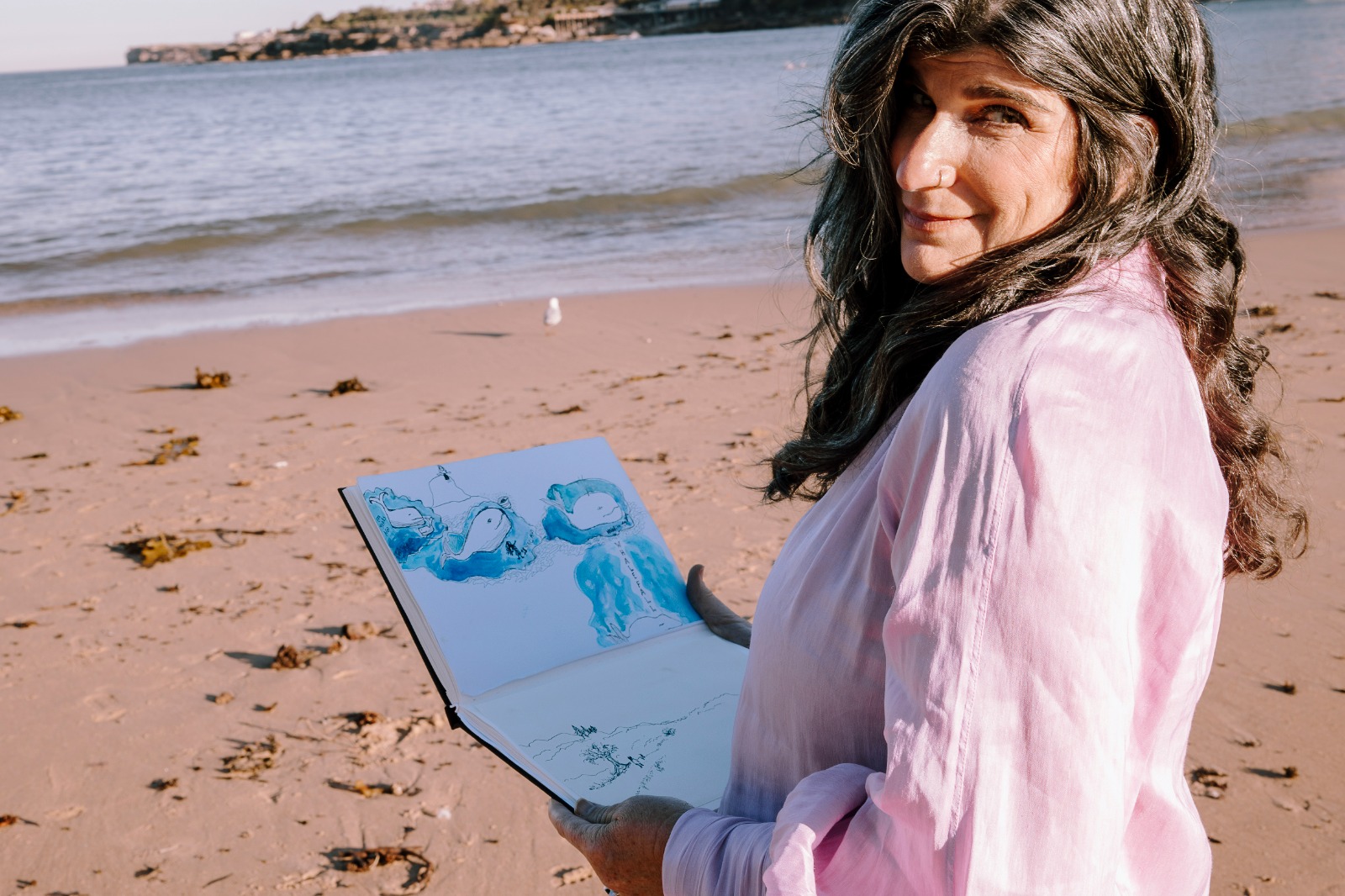
Lifestyle

The Whale’s Last Song brings solace to the child within
South African-born author Joanne Fedler has just released her latest book, The Whale’s Last Song. The SA Jewish Report discusses it with her.
What inspired you to write the book?
The Whale’s Last Song slipped out of me after the death of my mother, who died of cancer during the COVID-19 pandemic. During my grief, I read children’s stories. It was as much as my aching heart could manage. I read all of Kate DiCamillo’s books, and after reading The Magician’s Elephant, I wondered if I could write something short, deep, and profound, that contained everything I felt.
This book is a far cry from anything you have written before. How would you describe the style/genre?
A mythic tale, a fable. It has even been described as fantasy.
What made you take the leap into a new genre?
I didn’t consciously leap into a new genre, I just worked towards a story that could help me hold my pain. In times of grief, when there are no apparent answers or solutions, the heart needs a container in which joy and heartbreak can co-exist. Myths and fables help us to keep our wounded hearts open when there seems to be no medicine that will heal us. They are how we borrow joy and sorrow from elsewhere, a mythic past or an imagined future. Inside fairytales and fiction, secrets of the soul are buried like prayers, and are silently passed to us, like an imperceptible whisper, so that we feel touched by something larger than ourselves. This is why they offer solace when nothing else can.
One of the themes in the book is the lengths one goes to protect and help those we love. Does this relate to your own family?
I think all stories hold a holy question at their centre. Mine is, “How do we save the people we love?” I couldn’t save my mother when she was ill. But The Whale’s Last Song, through the language of wondering and enchantment, addresses this longing obliquely and symbolically.
Describe your main character, Teo, and what she represents for you.
She is a motherless child, one-eyed, brave, and curious, a girl whom everyone else believes is a boy. She goes on a journey to find a cure for the pox because her sister is dying. She represents the hidden self, the part of us that remembers to remember.
Describe the process of writing this book.
I listened to hours of whale song. I painted water colours. I recorded my dreams. I drew sketches. I swam in the ocean.
Was the process different to that of your other works?
It was playful, curious, and experimental, and took me way beyond the writing. I needed language and storytelling that could approximate but not directly address my grief – it was still too raw. This story did just that, drawing on poetry, imagery, imagination, and mystery.
I thought I was writing a children’s book and had no agent or publisher for it until it was done. So, I wrote it mostly for me, wondering if I could write something frolicsome and poetic, deep and light. I imagined it would have illustrations and hoped it would work on those many levels that a good children’s book does. In the end, I had to rewrite it for an adult audience.
What’s the symbolism of the whale? Does this animal feature in your life at all?
Out in the depths of the ocean, a whale is coming to the end of its life. At first, we don’t know how this relates to the story of Teo on a mission to find a cure for her sister. But this is a story about the pattern of how things fit together. The whale holds the answer to all of Teo’s unanswered questions about where she comes from and what happened to her mother. Even today we don’t know why whales sing or how their songs travel from one part of the planet to the other. They are creatures that still hold their mysteries away from the greedy prying hands and eyes of humans.
This book has been described as being “The Alchemist meets The Princess Bride meets The Little Prince”. What do you make of that description?
I don’t know if these comparisons are helpful, but people who loved those stories will likely enjoy this book. It has the enchantment of The Princess Bride, and the mythic reach of The Alchemist and The Little Prince. In other words, it’s about more than just the story being told.
You wrote this during the pandemic, soon after your mother passed away. What impact did that have on your writing?
The voice came from somewhere in the fathoms of my childhood. I was writing for a little girl, perhaps the motherless child I had just become
When you wrote about this book, you said you hoped readers would want to read it aloud. Why?
When you hear a story read out loud, it reminds you of being a child, being read to by a parent. It has that soothing feel of someone being beside you, reassuring you. I wanted the voice to be a comfort to a reader. I also worked very hard on the language, on every single word, and hoped it would read like poetry.
There are themes in the book about leadership and corruption. Who or what inspired this focus?
Having just lived through a pandemic, I was keen to research the plague of Seville and wasn’t surprised that it coincided with witch hunts. History is filled with cautionary tales of how leaders respond to crises – especially whom they blame and persecute. The evil Marquis is based on Joseph Goebbels, who was a philologist, a master of propaganda. I have always been fascinated by the role he played in Hitler’s Reich.
Explain the concept of whalefall, which is the central metaphor.
I came across the concept of whalefall in Rebecca Giggs’ astonishing book Fathoms: The World in the Whale. When a whale dies of natural causes, it begins to sink to the deepest ocean floor, feeding millions of creatures and regenerating ecosystems. The whale is the ultimate symbol of a depersonalised generosity. When it dies, it gives everything back to the ocean so life may continue. One of the messages of the book is that humans aren’t special, but just another part of life, and that sometimes risking our own safety to safeguard others and protect a world we will likely not benefit from is how we honour life, as opposed to our own lives.
What’s next for you as an author?
I have just completed a memoir about losing my mother during COVID-19 called Bring Us Home to Sorrow which is now with my agent. I have also written 40 000 words of a book similar in style to The Whale’s Last Song called The Ransom of Rain about a deaf princess in medieval Italy who is kidnapped during a drought and the ransom demanded is the return of the rains.
- The Whale’s Last Song will be launched at Love Books in Melville on Wednesday, 12 March, at 18:00. Contact kate@lovebooks.co.za to book.










